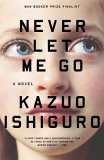Summary | Excerpt | Reading Guide | Reviews | Beyond the book | Read-Alikes | Genres & Themes | Author Bio

From the book jacket: In each of the three sections of Michael
Cunningham's bold new novel we encounter the same
group of characters: a young boy, an older man, and a young
woman. "In the Machine" is a ghost story that takes place at
the height of the industrial revolution, as human beings
confront the alienating realities of the new machine age.
"The Children's Crusade," set in the early twenty-first
century, plays with the conventions of the noir thriller as
it tracks the pursuit of a terrorist band that is detonating
bombs, seemingly at random, around the city. The third part,
"Like Beauty," evokes a New York 150 years into the future,
when the city is all but overwhelmed by refugees from the
first inhabited planet to be contacted by the people of
Earth.
Presiding over each episode of this interrelated whole is
the prophetic figure of the poet Walt Whitman, who promised
his future readers, "It avails not, neither time or place .
. . I am with you, and know how it is." Specimen Days
is a genre-bending, haunting, and transformative ode to life
in our greatest city and a meditation on the direction and
meaning of America's destiny. It is a work of surpassing
power and beauty by one of the most original and daring
writers at work today.
Comment: Just as in
The Hours, Cunningham tells three interrelated
stories separated by time. In The Hours
Cunningham improvised on Virginia Woolf's Mrs. Dalloway;
here his muse is Walt Whitman (Specimen Days was the
title of Whitman's 1882 autobiography). On the whole, the
critics were very positive about Specimen Days when it was published last
year in hardcover, with comments such as "A smashing literary tour de force" and
"one of the important
literary achievements of the new century.". However, some reviewers did express reservations, for example,
Michel Faber, writing for The Guardian (UK), commented that the mix of genre
styles that Cunningham employs could make it a challenging read for some,
"Perhaps the fiction Cunningham is attempting here is pitched at a reader who
doesn't exist: an adolescent who can leap straight from Star Wars to Henry
James, or an adult steeped in Woolf and Whitman who nevertheless retains a
childlike capacity to be moved by X-Men 2". However, Faber goes on to say,
"Specimen Days, in among its misfires and misjudgments, contains more
incidental beauty and emotional insight than many impeccably dull items on the
shortlists of prestigious literary prizes. And it's by far the best gothic
historical sci-fi cop thriller you'll ever read."
Michael Cunningham was born in Cincinnati,
Ohio, and grew up in La Cañada, California.
He received his B.A. in English literature
from Stanford University and his M.F.A. in
creative writing from the University of
Iowa. His first novel, A Home at the End of the
World, was published by Farrar, Straus
and Giroux in 1990 to wide acclaim. Flesh and Blood followed in 1995. In 1999 he received the Pulitzer Prize
for Fiction and the PEN/Faulkner Award for
his novel, The Hours. Specimen
Days was published in 2005.
When asked about Specimen Days, Cunningham says, "I never end up writing
the book I thought I was going to write, but one of the things I did know this
time was that I wanted it to begin during the Industrial Revolution, when we
ceased after millennia to be a fundamentally agrarian people and became the
mechanized society we are today. I wanted to start there and move into a time of
the future with cloning and interstellar travel."
After completing a book he likes to take a few months before starting the
next. In 2002 this resulted in him writing a travel guide to Provincetown,
Land's End: A Walk Through Provincetown, and more
recently he has been working on a screen adaptation of
Good Grief.
![]() This review was originally published in The BookBrowse Review in June 2005, and has been updated for the
May 2006 edition.
Click here to go to this issue.
This review was originally published in The BookBrowse Review in June 2005, and has been updated for the
May 2006 edition.
Click here to go to this issue.

If you liked Specimen Days, try these:

The Thousand Autumns of Jacob de Zoet
by David Mitchell
Published 2011
A magnificent mix of luminous writing, prodigious research, and heedless imagination, The Thousand Autumns of Jacob de Zoet is the most impressive achievement of its eminent author.

by Kazuo Ishiguro
Published 2006
A tale of deceptive simplicity that slowly reveals an extraordinary emotional depth and resonance – and takes its place among Kazuo Ishiguro's finest work.
Your guide toexceptional books
BookBrowse seeks out and recommends the best in contemporary fiction and nonfiction—books that not only engage and entertain but also deepen our understanding of ourselves and the world around us.